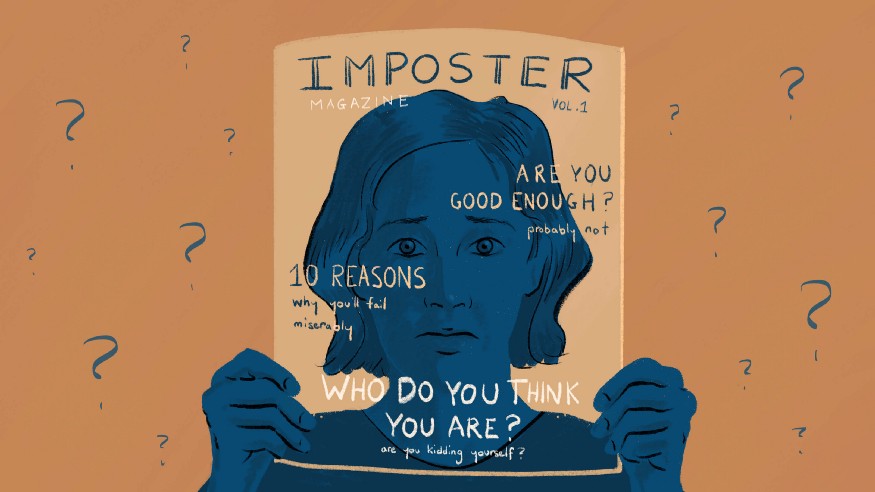
Do you ever sit in a room full of people and have a feeling of inadequacy and not belonging there? If you are a developer and have often experienced this, you are likely to be a victim of Developer Imposter Syndrome. Let us get to the ABC’s of what it is.
What is Developer Imposter Syndrome?
In terms of clinical grounds, Imposter syndrome is defined as a repeated feeling of inadequacy that continues to persist even after evident success. ‘Imposters’, or the people suffering from the syndrome experience episodes of chronic self-doubt which lead to them questioning their intelligence, which often leads it to override all the successes and accomplishments that they may have successfully achieved in the past. Imposter Syndrome has its roots in all the industries and the development industry is no exception.
The fraction of the people in the software development industry who suffer from this syndrome would actually shock you. Not only do the junior and mid-level developers doubt their capabilities, DIS also encapsulates the senior level programmers and developers with years of experience and unending intellectual domain to be uncertain of themselves. While the doubt feels real, the potential feels fake!
Characteristics of Developer Imposter Syndrome:
While it is very common to develop DIS in a challenging and a dynamic industrial environment, there are certain characteristics that help us recognize and acknowledge when one is suffering from it. We have enlisted the characteristics that are often observed if a person is suffering from DIS:
- A sense of overachieving
- Underestimating one’s capabilities
- Entering a new job role
- Getting intimidated by coworkers’ qualifications
- Navigating your mind how you are not able to cope up with new technologies
- Feeling of inadequacy when new tools or languages are introduced in industry
It is not necessary for a programmer to inevitably suffer from DIS, sometimes a specific actor or situation can trigger it as well. For example, the software industry is continuously changing, and there are new technologies, platforms and languages being introduced. This increases demand for agile learning, expanding horizon for software engineers and programmers. This can create a sense of insufficiency in one’s mind. Apart from this media, in all its forms also plays an important role. Software development industry is always attracting all attention, start-ups and their founders are portrayed as profusely huge and successful. This creates a space where people almost believe they won’t be able to become top-tier software programmers because many people have rooted the notion that only the most intelligent ones can be part of this industry.
How does DIS Affect Software Engineers?
1. Developer Imposter Syndrome plays with one’s mind and even if we have accomplished, it makes us believe that we’ve not accomplished enough to be a deserving developer. Eventually, this starts to bring developers’ morale down and they stop seeing their industrial worth given a room full of developers.
2. Once software engineers have believed that they don’t deserve what they are getting, this syndrome gets to their productivity as well. Developers start taking stress beyond their capacity, most of them turn anxious or drift into severe depression and they start giving up on their roles – which, finally affect the entire industry.
3. This also leads to developers and engineers wanting to focus on the quantity of work they have done. Instead of writing clean, manageable and easily understandable codes, they hurry it up, and end up submitting unclean and bad codes. This is because the quantity of work makes them feel productive.
4. They also start quitting the job in industry soon after joining or just change their industry. This feeling also stops many freshers from entering the tech industry, in the first place.
How to Overcome DIS?
While it is very common for DIS to occur in this industry and that so, in a way that sucks most of the software development, there are some ways through which we can deal with this.
- Be comfortable with breaking your comfort zone – We need to understand that this developer imposter syndrome never really leaves us. The seed of this syndrome lies in the fact that we compare ourselves to what others know. Our mind chooses to see what they know, and are good at and refuses to believe that there are many aspects they are struggling with and don’t have a good grasp of. It is pretty similar to how instagram works. We see people’s successes, accomplishments, happy moments, moments of victory but the backend of it all – rock bottom moments, moments of anxiety and depression, their struggle and hard work – all of it remains hidden, encapsulated. The real essence of DIS is that we focus on others’ brilliance and intelligence rather than your own. Honestly speaking, there will always be someone who knows more than you, who learns technologies faster and is a better developer. There will always be someone who is more diverse than you. It is very important to analyze your weaknesses and use it to fuel up your growth and not self-doubt.
- Adopt a dynamic mindset – It has been seen in many surveys that people who see their intelligence as a fixed entity have a desperate need to be perfect and the most efficient performer. They see their failures as a reflection of lack of intelligence and industrial brilliance. They find it hard to accept that the most intelligent people can also be imperfect in their own ways, and still be a part of the software industry. It is time to adopt a free flow, dynamic mindset.
- Keep track of your accomplishments – One of the best ways to deal with this syndrome is by reminding yourself how worthy you are. Having a track of accomplishments, awards, certifications, medals can help you remind yourself timely how you have progressed in the industry from thes scratch, how you have accomplished as a software developer.
This works as a bonus too, because this record of all accomplishments can give a good portfolio boost. Tada!
- Get Feedback from your mentors and seniors – DIS exists as long as we are making assumptions about our capabilities. A very efficient way to cross-counter this by getting feedback from people we work with/under. Suppose, you are learning new technology and programming a code and are stuck somewhere, be unhesitant and ask for your mentors’ or seniors’ help. Please understand that this doesn’t make you foolish or unintelligent, this makes you humble and lets you clear your concepts easily, without wasting any time. Outer feedback can give you real insight into how you are performing and it becomes easier to trust their words than our own thoughts.
- Understand job requirements before applying to a company – Often, under peer pressure and desire to be employed, we apply to a company whose job requirements do not match one’s capacity or threshold. Even though it is not impossible to work at such a place, it becomes tiring and mentally exhausting, and eventually we start feeling that we are not good enough. To avoid this, it is always advisable to go through job roles thoroughly and understand them completely before deciding what to do next. This would help you select a company where you can work with all your experience and knowledge and get the best experience.
- Set realistic career goals and have your fundamentals clear – Setting career goals is important but setting realistic fundamental goals is even more important. Different levels of the development industry can lead to different career goals. Try to set yours according to your knowledge, interest and capacity. With time as you gain experience, you can keep on diversifying these goals. This is gradual learning and lessens the burden that Developer Imposter Syndrome puts on you. Apart from this, have your fundamentals clear. There is no lack of free and paid sources, courses, certifications, mentors – online and offline. Make use of these to catalyze your understanding and programming skills.
Conclusion
In the end, you are a developer. A full-fledged developer, who is the anchoring spirit of the development industry. Your mind is the most creative space, it has knotted logic behind the greatest problems. You are a problem solver. Undoubtedly, the feeling of not being enough will stay with you as long as you are part of industry. New technologies will keep on coming through, new tools will be introduced, new and brilliant developers will be surrounding you. That doesn’t mean you are not enough, it just means that you are just not practiced enough yet but you can, and you will cross the threshold of the intelligence that you have marked for yourself. Go little rockstar!
References:
https://hackernoon.com/how-imposter-syndrome-affects-developers-062t31aq
https://www.alexhyett.com/imposter-syndrome-software-developer
https://www.geeksforgeeks.org/imposter-syndrome-in-software-developers-am-i-a-fake-developer/
https://www.parkersoftware.com/blog/developer-impostor-syndrome-why-you-feel-like-a-fake/
https://nearshorevates.com/2021/12/27/everything-you-need-to-know-about-developer-imposter-syndrome/
https://www.verywellmind.com/imposter-syndrome-and-social-anxiety-disorder-4156469
https://dev.to/tijan_io/developer-imposter-syndrome-3961
Rakshita Tripathi – 19162121046, B Tech CSE (BDA)
PC: https://samkib.medium.com/how-to-fight-against-imposter-syndrome-as-an-aspiring-software-developer-fdb8faae6aac
Visit Us : https://ict.guni.ac.in/admission



